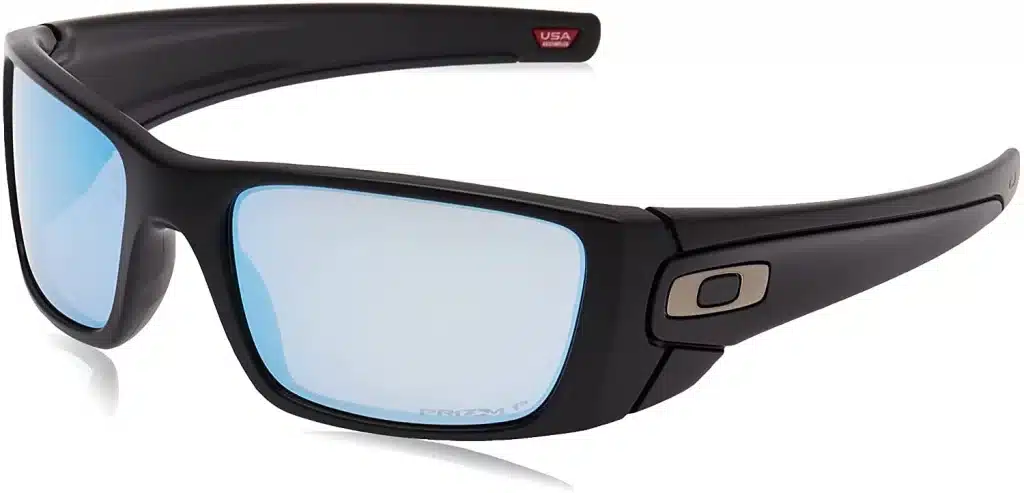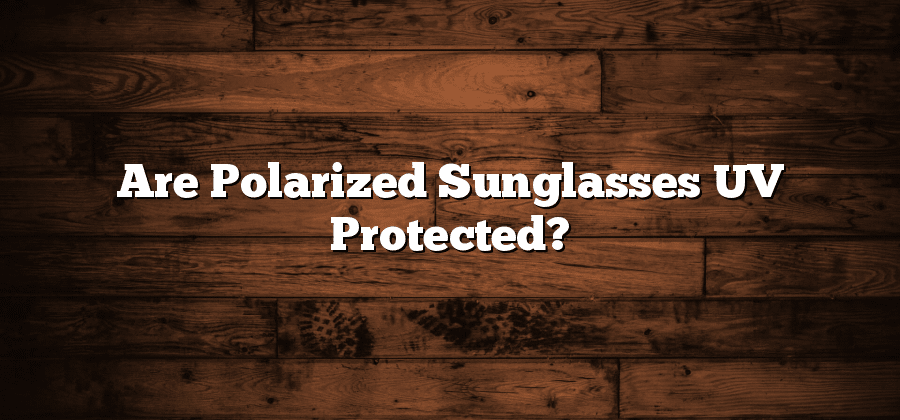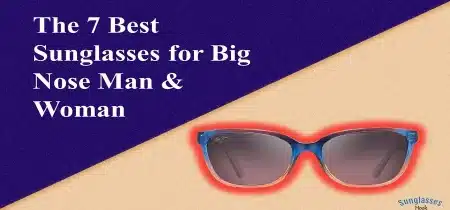When it comes to choosing sunglasses, one of the key factors to consider is the level of protection they provide against harmful ultraviolet (UV) rays. UV radiation is a form of electromagnetic radiation that is emitted by the sun and can have damaging effects on our eyes and skin. Polarized sunglasses have gained popularity for their ability to reduce glare, but many people wonder whether they also offer UV protection. In this article, we will delve into the topic and answer the question: are polarized sunglasses UV protected?
Understanding Polarized Sunglasses

To comprehend the relationship between polarized sunglasses and UV protection, let’s first understand what polarized sunglasses are. Polarized sunglasses are specially designed to reduce glare caused by reflected light. Glare can be particularly problematic in certain situations, such as when driving, participating in water sports, or spending time in snowy environments.
Polarized lenses contain a special filter that blocks horizontally polarized light, which is the type of light that causes glare. This filter consists of molecules aligned in a specific direction that allows only vertically polarized light to pass through, effectively reducing the intensity of glare and improving visual clarity.
UV Protection in Sunglasses
Now, let’s turn our attention to UV protection. Exposure to UV radiation can lead to various eye problems, including cataracts, macular degeneration, and even certain types of eye cancer. Therefore, it is crucial to protect our eyes from these harmful rays.
When it comes to sunglasses, the level of UV protection they offer depends on the type of lenses they have. Sunglasses can be categorized into three different types of UV protection:
1. Non-UV Protective Lenses: Some sunglasses on the market may not provide any UV protection at all. These sunglasses are primarily intended for cosmetic purposes and do not have any special coatings or filters to block UV rays. Wearing such sunglasses can be more harmful than not wearing any at all since the darkened lenses cause the pupils to dilate, allowing more UV radiation to enter the eyes.
2. UV-Absorbing Lenses: Many sunglasses are designed with lenses that have a special coating or are made from a material that absorbs UV radiation. These lenses are capable of blocking a significant portion of both UV-A and UV-B rays. However, it’s important to note that the level of UV protection can vary among different sunglasses, and some may provide better protection than others.
3. UV-Blocking Lenses: The highest level of UV protection is provided by sunglasses with lenses that have built-in UV filters. These lenses are specifically designed to block 100% of both UV-A and UV-B rays, offering optimal protection for your eyes. They are often labeled as “UV 400” or “100% UV protection.” It’s advisable to choose sunglasses that have this level of UV-blocking capability.
The Relationship Between Polarization and UV Protection
Now, let’s address the question: are polarized sunglasses UV protected? The answer is both yes and no. Polarization and UV protection are two separate characteristics of sunglasses, and one does not necessarily imply the other.
Polarized sunglasses primarily reduce glare by blocking horizontally polarized light. While this can enhance visual comfort and reduce eye strain, it does not guarantee UV protection. However, many high-quality polarized sunglasses are also equipped with UV filters, providing both glare reduction and UV protection.
To ensure that your polarized sunglasses offer adequate UV protection, it’s crucial to check the label or product specifications. Look for sunglasses that explicitly state they provide 100% UV protection or have a UV 400 rating. This ensures that your eyes are shielded from both UV-A and UV-B rays while enjoying the benefits of reduced glare.
Conclusion
In conclusion, not all polarized sunglasses offer UV protection by default. While polarized lenses are excellent at reducing glare, they may or may not have the necessary UV filters. When purchasing sunglasses, it is essential to look for those that explicitly mention UV protection or carry a UV 400 rating, indicating full protection against UV radiation.
Protecting our eyes from harmful UV rays is crucial for maintaining good eye health. By choosing sunglasses that provide both polarization and UV protection, we can enjoy the benefits of reduced glare while ensuring our eyes are shielded from the damaging effects of UV radiation.



Recent Comments